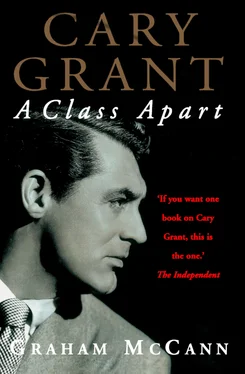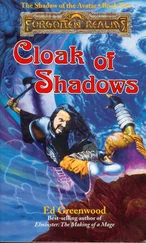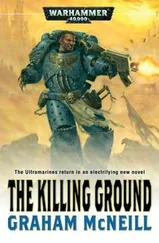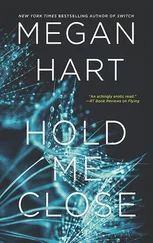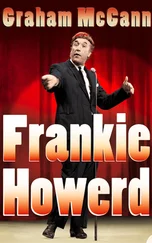At one point, late on during the crossing, Archie Leach found himself (probably less fortuitously than he later liked to suggest) being photographed alongside his hero during a game of shuffleboard: ‘As I stood beside him, I tried with shy, inadequate words to tell him of my adulation. He was a splendidly trained athlete and acrobat, affable and warmed by success and well-being.’ 26 Archie’s glimpses of Fairbanks on that first Atlantic crossing provided him with his initial, and possibly most enduring, image of modern elegance and style. Cary Grant always attributed his almost obsessive maintenance of a perpetual suntan to that first sighting of Fairbanks’s deeply bronzed complexion, 27 and he was also equally impressed by the relatively thoughtful and understated elegance of Fairbanks’s dress sense (he was not the only one: many of the studio bosses had started out in the clothing trade, and there were few sights more likely to have them purring with delight than that of a well-tailored suit 28 ). An Anglophile, Fairbanks had his suits made in Savile Row by Anderson & Sheppard, his evening clothes by Hawes & Curtis, his shirts by Beale & Inman and his monogrammed velvet slippers by Peel. Grant never forgot the subtle precision of that celebrated sartorial flair. Ralph Lauren has said that, years later, Grant described, in minute detail, how Fairbanks looked, and he urged Lauren to make a double-breasted tuxedo ‘like the one worn by Fairbanks, same lapel and all’. 29
Archie Leach was aware, however, that he could not, and should not, simply replicate the Fairbanks look. Cary Grant could not be another Fairbanks. Fairbanks was, at least on the screen, an all-American hero and Cary Grant, whatever, whoever, he might become, was never going to pass for an all-American hero. Gary Cooper would be able to grow into the role of the westerner, his voluptuous, gentle-looking face changing gradually – as though it had long been left thoughtlessly outside at the mercy of the elements – into a harder, rougher complexion, but Cary Grant could not go far in that particular direction. If Cary Grant’s future was American, his lineage was English. He could change the way he looked rather more effectively, and speedily, than he could change the way he sounded. His accent, when he arrived in Hollywood, was the oddest thing about him. Nobody talked like that, not even Archie Leach in earlier years.
There is no reason to believe that Archie Leach, during his childhood and early adolescence, sounded in any way different from other working-class Bristolians. There are, indeed, some who claim to be able to discern the distinctive ‘burr’ of his old Bristol accent beneath the assumed American tones. 30 It seems likely that Archie Leach’s accent first began to change during the period he spent in London with the Pender troupe. It was not just that he was, at the impressionable age of fourteen, exposed to the distinctive dialects associated with South London, but also, more specifically, that he was drawn into the London music-hall community, which had developed its own semiprivate patois, something described by one performer as ‘a mixture of Cockney, Romany and Hindustani’. 31 Archie Leach, in time, would speak in his own odd hybrid of West Country and mock-cockney, with an increasingly distinctive staccato enunciation. Ernest Kingdon, his cousin, believed that this peculiar accent was to some extent the result of the fact that he was ‘trying to maintain English speech, and he had trouble with his diction … It’s not cultured English talk [but] very precise … as if he’d been taught elocution.’ 32 This very individualistic way of speaking was probably made even more noticeable during the years Leach spent touring the music-halls in Britain and America with the Penders. Peter Honri, a member of one of Britain’s most famous music-hall families, has noted that the so-called ‘music-hall voice’ relied not so much on volume as on ‘pitch and resonance’ – it was ‘a voice with a cutting edge’. 33
Archie Leach, as he struggled to survive in New York, realised that being – or, more pointedly, sounding – English limited the number of stage roles he could, with any seriousness, audition for. 34 ‘I still spoke English English, and I knew that to get jobs here, I’d have to learn American English.’ 35 He was not trying consciously to erase the sounds that associated him with a certain geographic and class background; he was simply trying to make himself more employable in his new environment. As Richard Schickel has argued, he was probably aiming not for affectation but rather for ‘something unplaceable, even perhaps untraceable’, a malleable accent that could lend a ‘democratic touch of common humanity’ to an aristocratic role and a ‘touch of good breeding’ to the more raffish parts. 36
He did his best, and, of course, his accent had already begun to change during those first formative years he had spent in the United States, 37 but the transformation process was both slow and incomplete. Some New Yorkers during this time mistook him for an Australian, 38 and a number of his colleagues, for a brief period, took to calling him ‘Boomerang’, ‘Digger’ or ‘Kangaroo’ Leach (years later, in Mr Lucky , he referred back to this strange misconception, having his character explain his use of cockney rhyming slang by saying, ‘Oh, it’s a language I picked up in Australia’). Although his accent, once he had settled in Hollywood, grew gradually into its now-familiar transatlantic timbre, it continued to strike some American admirers as beguilingly exotic. The critic Richard Corliss, for example, writing on the occasion of Cary Grant’s death, recalled the ‘cutting tenor voice that refused to shake its Liverpool origins’ 39 (which is rather like suggesting that James Stewart never quite managed to lose his Texan twang). Grant himself remained appealingly unpretentious and self-effacing when referring to his accent: when Jack Warner offered him Rex Harrison’s role in the movie version of My Fair Lady , he exclaimed, ‘I cannot play a dialectician – a perfect English teacher. It wouldn’t be believable … I sound the way ’Liza does at the beginning of the film.’ 40
If the accent was, and would continue to be, unique, it was distinctive in the ‘right’ kind of way as far as Hollywood producers were concerned. There was a demand at the time for British (or at least British-sounding) actors, because the diction of so many American performers was, it was thought, ill-suited to the technical limitations of the early ‘talkies’. Although Archie Leach had arrived in Hollywood with his accent a volatile mixture of West Country, South London and New York, Cary Grant was able to attract attention by the way he sounded as well as by the way he looked. That accent, as a critic, Alexander Walker, has pointed out, gave the new personality an ‘edge’; it impressed on the voice ‘the sharpness that comedy needs if it’s to be slightly menacing’. 41 It would, in time, become the kind of accent that could underline the humour in well-written dialogue and disguise the absence of it in the most mediocre of lines. Writers, as a consequence, were among Cary Grant’s most genuine admirers. Listen to the way, in The Awful Truth (1937), that Grant, serving a rival with a glass of egg-nog, manages to make the innocent question, ‘A little nutmeg ?’ sound like a threat, or how, in The Grass is Greener (1960), he places such an artfully sardonic emphasis on the question, ‘Do you like Dundee cake?’, that it succeeds in mocking both the place-name and the antiquated mannerisms of his upper-class character. Cary Grant would become the kind of person who, as David Thomson put it, ‘could handle quick, complex, witty dialogue in the way of someone who enjoyed language as much as Cole Porter or Dorothy Parker’, with a memorably serviceable accent, caught between English and American, working-class and upper-class, that produced a tone that could be made to sound ‘uncertain whether to stay cool or let nerviness show’. 42
Читать дальше
